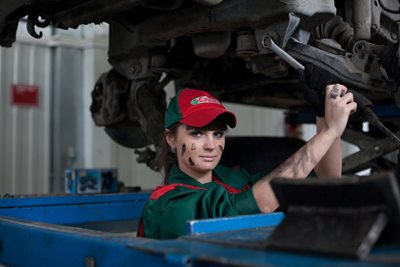Published: 05 June 2019

The FTA recently released their 2019 Logistics Report. Going into some detail expressing their concerns, they gave a prediction that over 50% of jobs for technicians, mechanics and fitters won’t be filled – meaning there’ll be more demand for employment in this field. While a prediction of 15% of haulage job opportunity positions will not be filled. The research also involved a poll featuring the thoughts of over 500 national and international firms in the haulage industry, who delivered their concerns quite clearly throughout the report. They also believe that a third of advertised Heavy Goods Vehicle driver vacancies could suffer delays before meeting the ideal candidate for the role.
The FTA further elaborated, clarifying that these shortages could be due to a lack of experience or required skills from those who would like to take on the roles in the industry. Head of skills campaigns at the organisation, Sally Gibson, identified this as a “blight” for haulage and logistics. The FTA has reached out to the Government to address these concerns and do more to lead to future interest from the next generation to learn these skills, meaning that their predicted shortage will never become a reality which would lead to many concerns for businesses across the country. They added the suggestion that the government’s future immigration plan should authorise foreign staff to work within the UK, whether Brexit happens or doesn’t.
Speaking on her concerns, Sally Gibson stated: “The logistics sector is the lifeblood of the nation’s economy, employing more than 2.7 million people and contributing £124 billion gross value added, from HGV drivers to warehouse staff, the UK economy simply cannot operate without the logistics workforce – businesses would come grinding to a halt and Britain would cease trading.”
“An aging workforce, competition for skilled staff, and shifting migration patterns – in part in response to Brexit – mean we are facing serious challenges in the recruitment and retention of labour for key logistics roles. After all, the average age of a HGV driver is 48 years, as found in the survey, and 13 per cent of HGV drivers working in the UK are EU nationals; their continued residency is not guaranteed post-Brexit.”
Head of automotive at the FTA, Lawrie Alford, had his own say on the matter. He described the cost if there was a shortage of mechanics could be significant for haulage firms – with more vehicle downtime, this could mean more delays in the workforce.
He explained: “Vehicle mechanics, technicians and fitters play a vital role in keeping the UK’s logistics sector running seamlessly, but the pool of these skilled engineers is declining rapidly, currently, six million vehicle inspections are undertaken per annum by 30,000 technicians working on HGVs, trailers and PSVs. But unless the skills shortage is tackled, workshops will struggle to keep up with demand and queues for vehicles inspections and repairs will grow longer and longer. Operators will be forced to place their vehicles in ‘downtime’ for increasing periods, which could cause their operations to come grinding to a halt; not ideal for the consumers and businesses who have come to expect superfast, “just-in-time” deliveries.”
“Not enough secondary school and college leavers are drawn to technician apprenticeships; we must work together to promote the benefits of this career and ensure the industry attracts a steady flow of new talent.”
For the next generation, the Government need to take action developing some interest in these roles. Through apprenticeship schemes or other opportunities when training, to combat the decline in those qualified and general public interest in these unique vacancies.